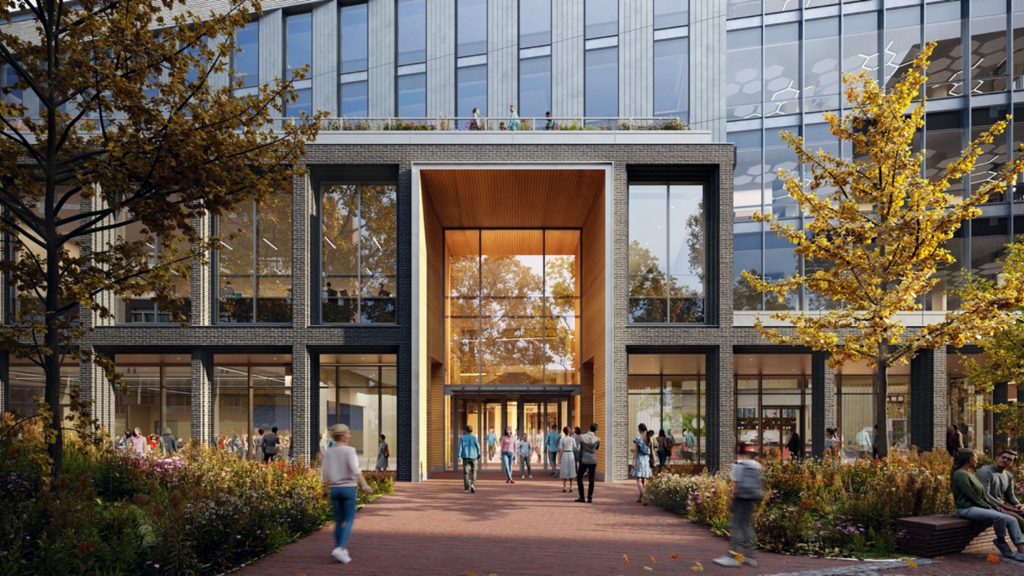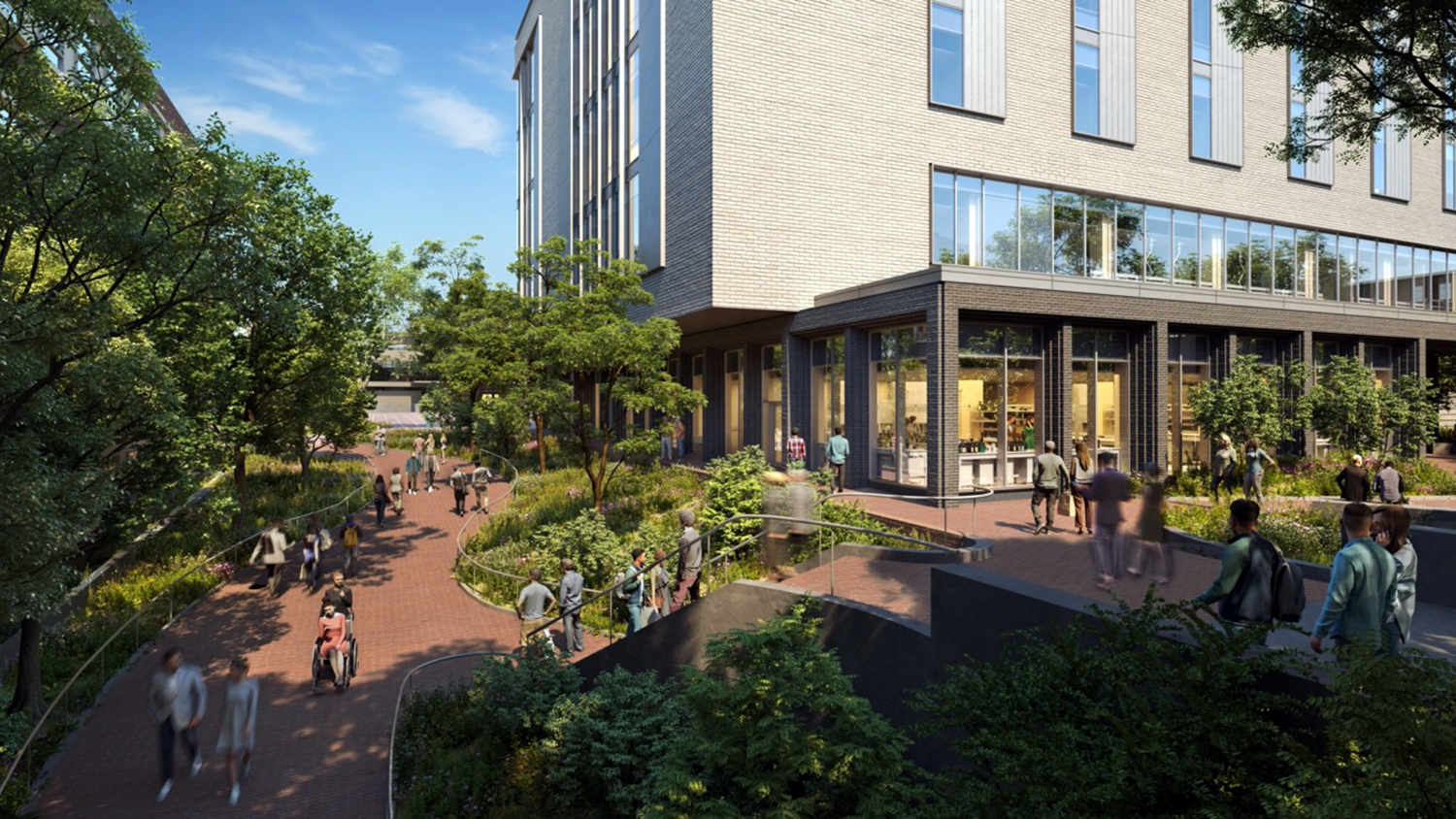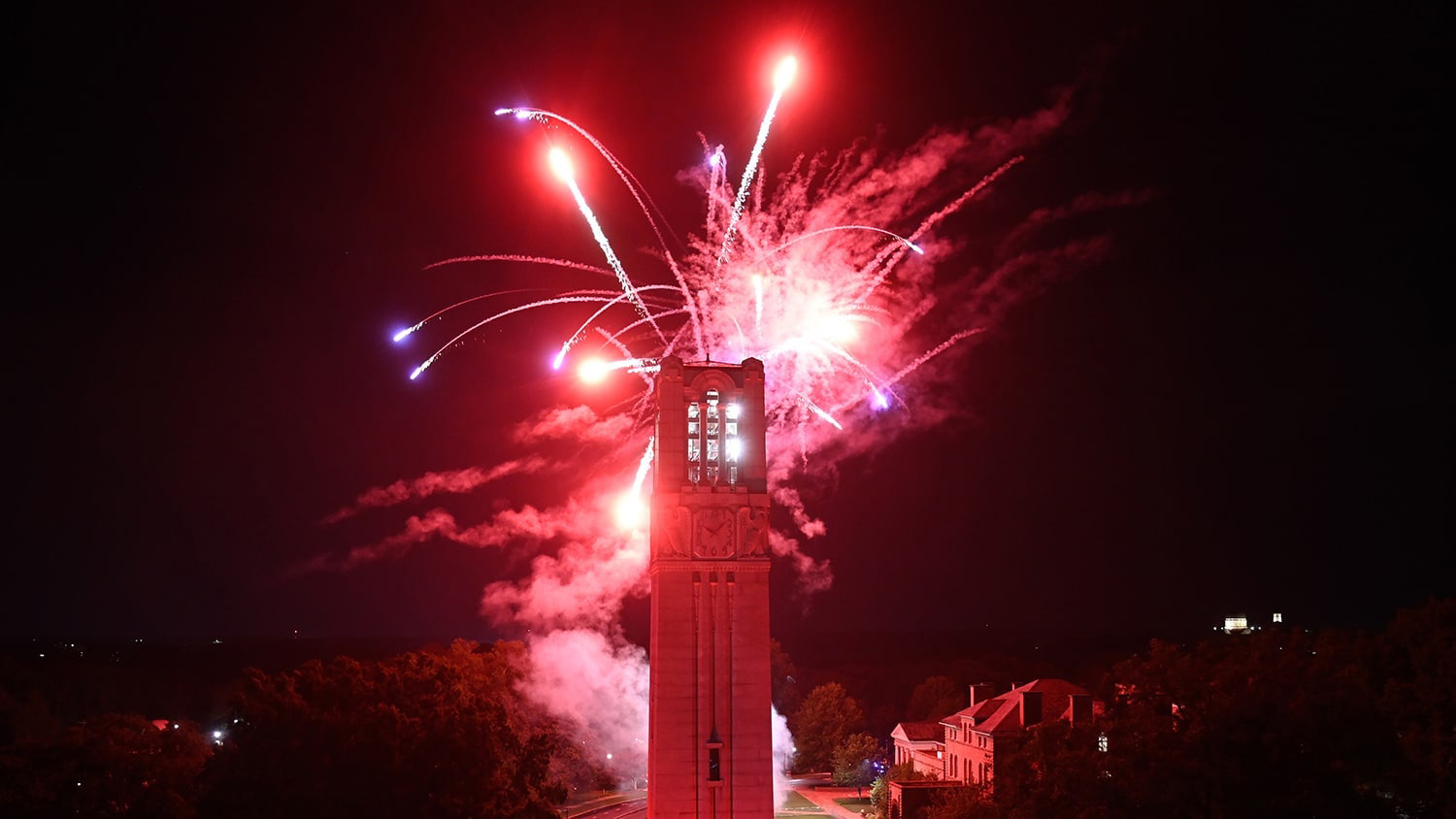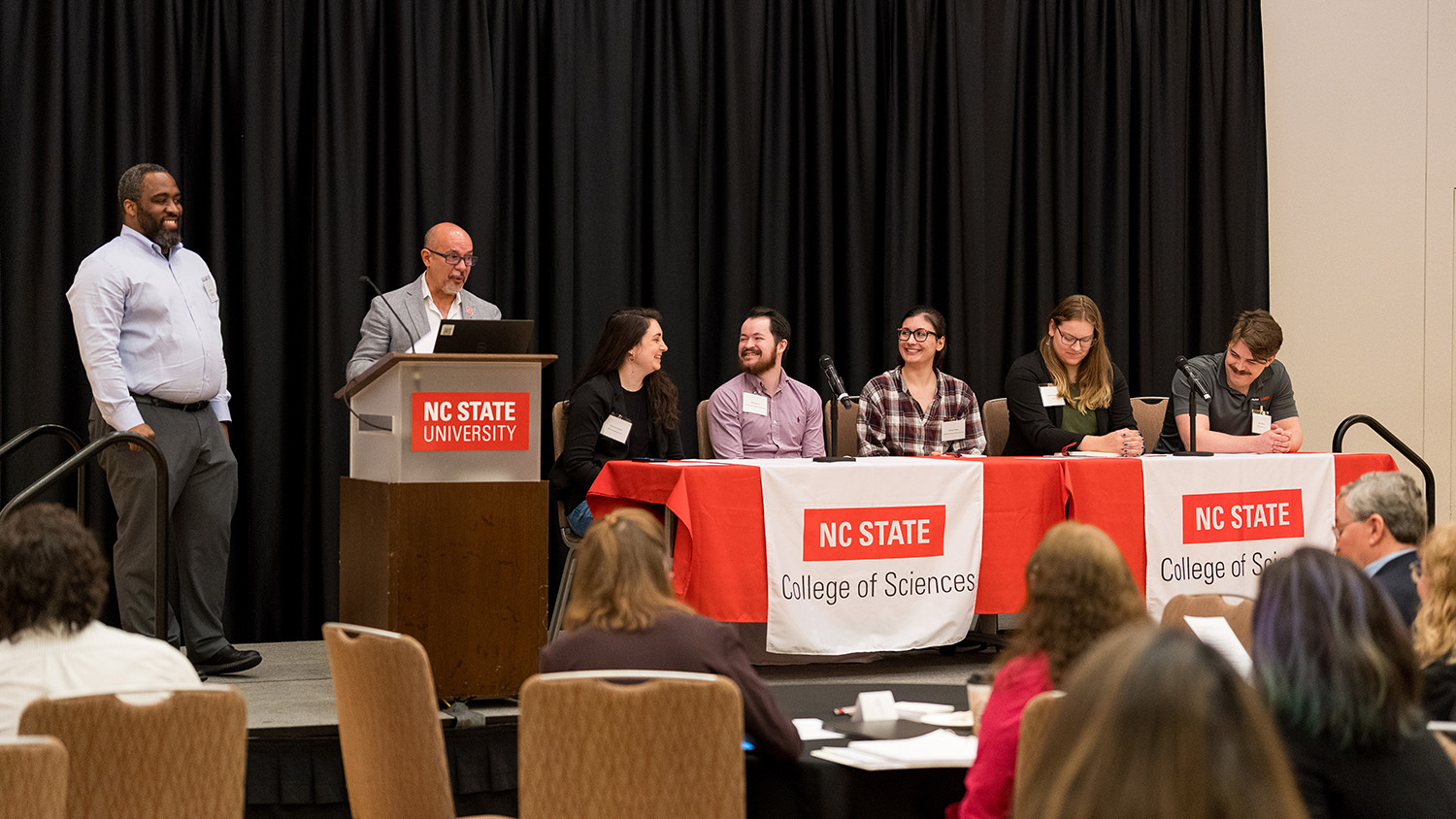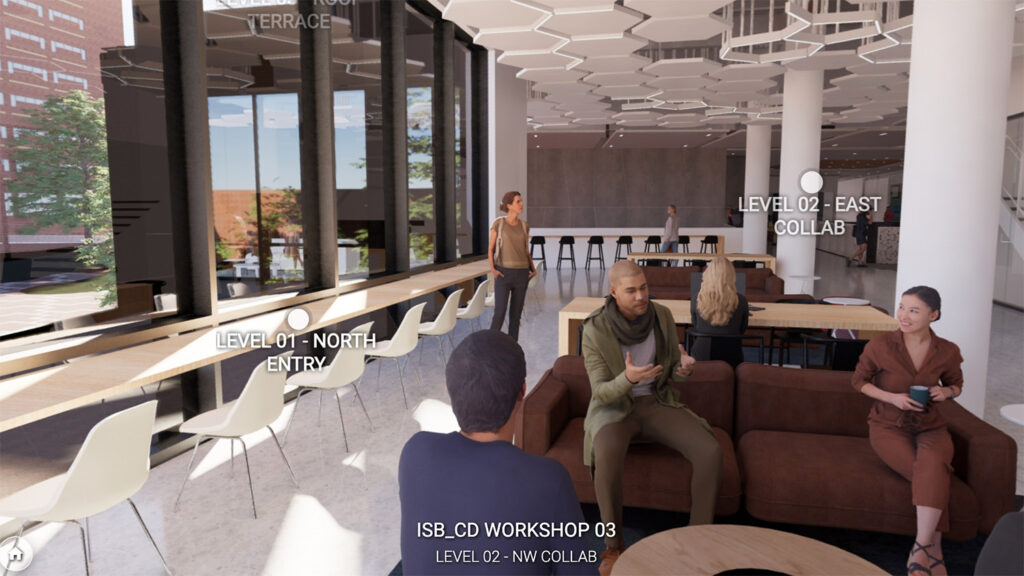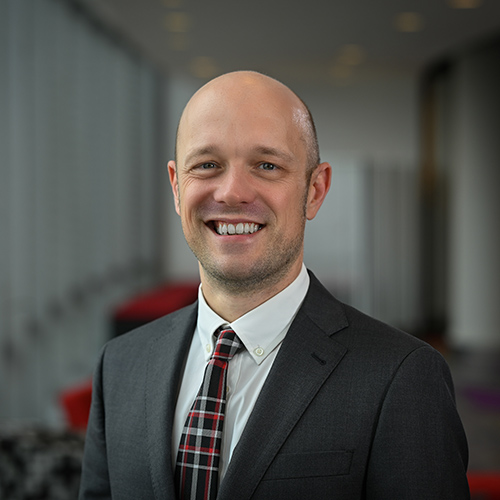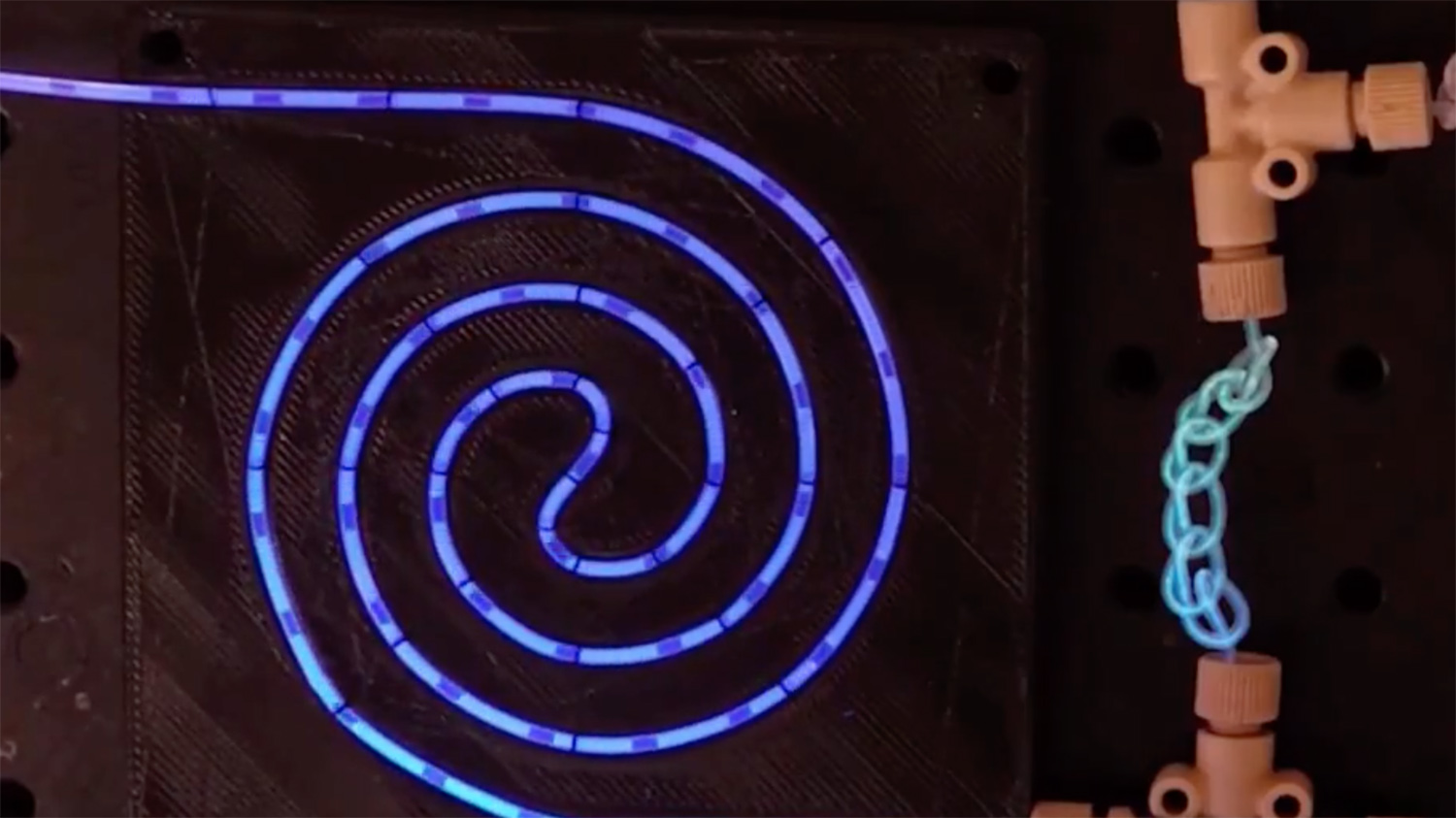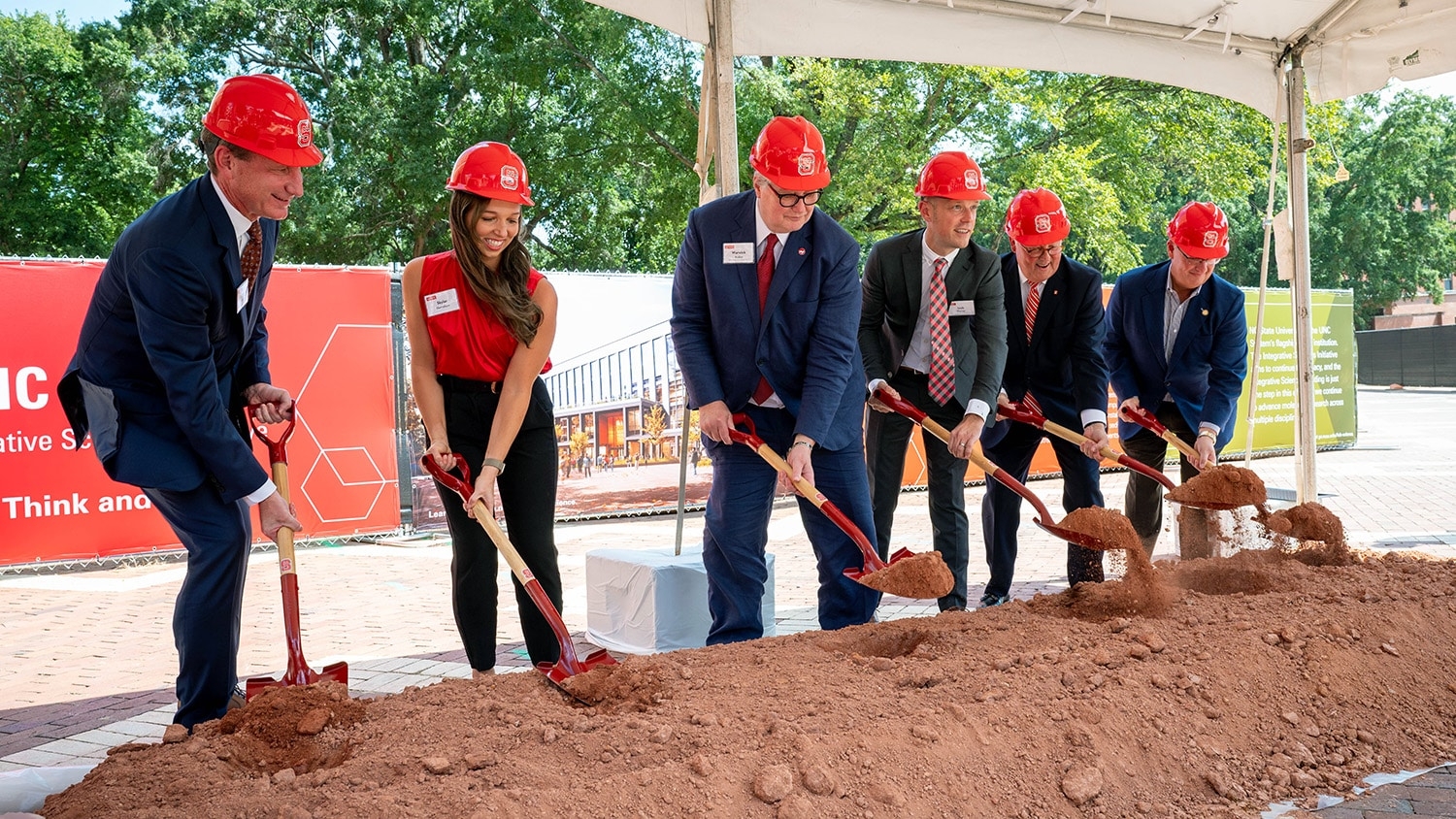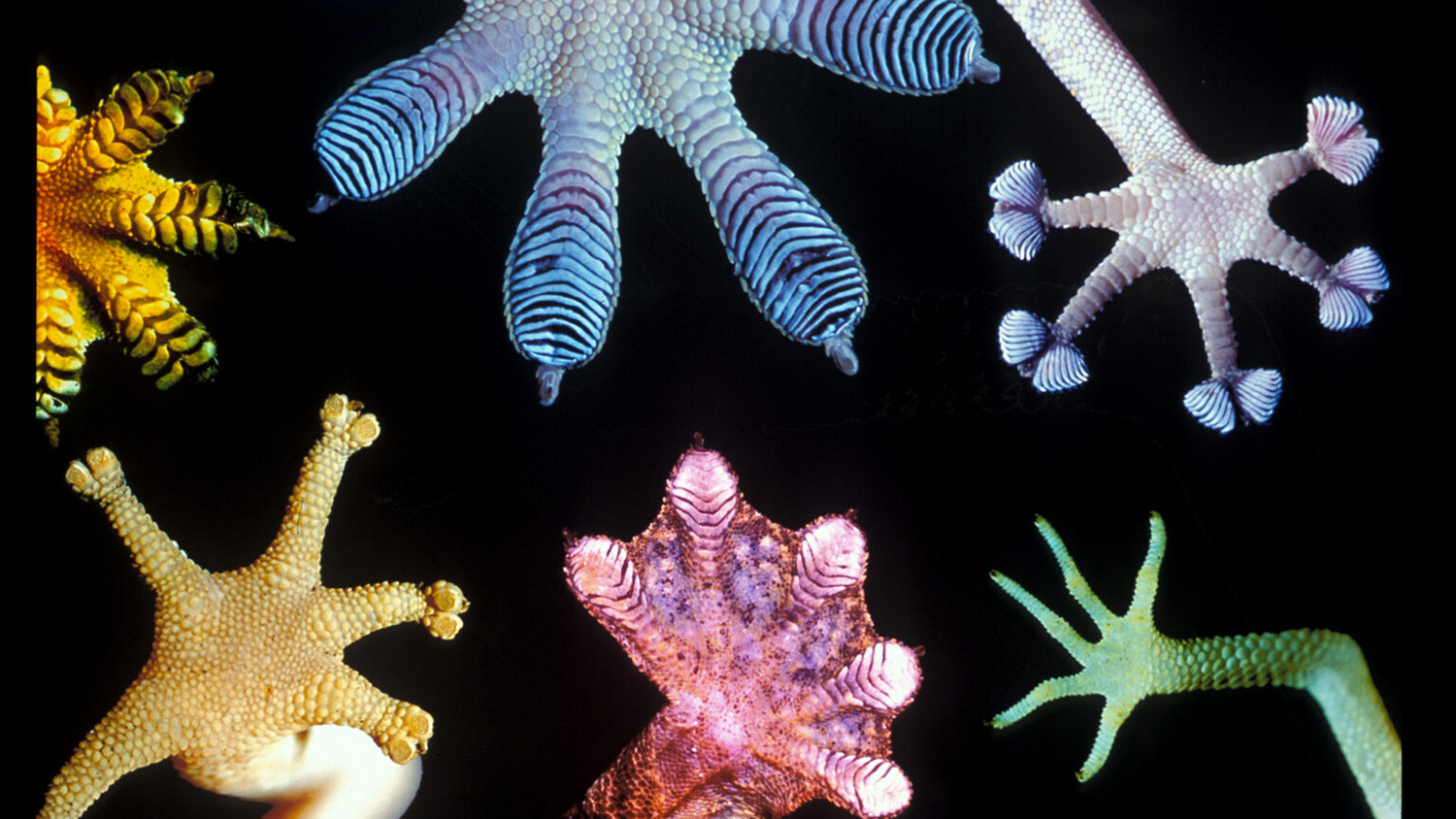Integrative Sciences Initiative and Building
The Integrative Sciences Initiative (ISI) and Building (ISB) unite a dynamic community of interdisciplinary scholars committed to developing molecular solutions that address society’s most pressing human, animal and plant health challenges.
Uniting the Sciences at NC State
Every modern challenge facing human society involves the sciences. Rising to meet those challenges requires chemists, biologists, physicists, engineers and mathematicians to unite their disciplines. New technologies are making it ever easier for these researchers to work together, particularly as they study molecules — the fundamental chemical building blocks of human bodies, medicines, fertilizers and energy systems alike.
The Integrative Sciences Initiative (ISI) is transforming teaching, research and discovery in chemistry and other STEM fields at NC State by employing the latest technology, solving major societal challenges and training a new generation of interdisciplinary scientists ready for every future opportunity.
The new $180 million Integrative Sciences Building (ISB) — the heart of the initiative — will provide vital space for STEM teaching and research space at NC State and serve as a catalyst for transforming the sciences.
Watch Our Progress
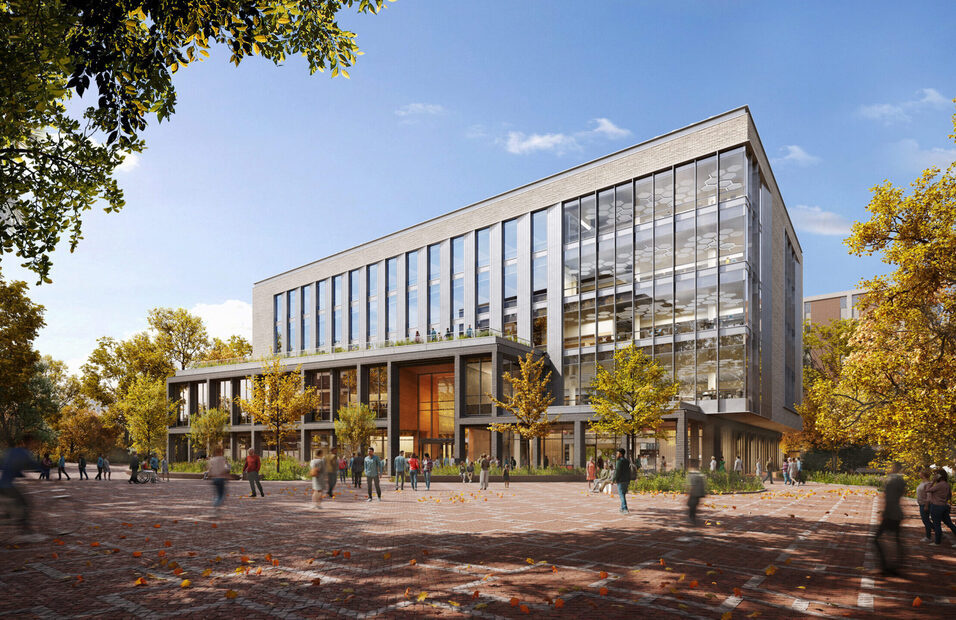
The Need for a New Kind of Space
NC State has outgrown our existing spaces for lab-based science programs, which are critical for a campus that awards one-third of the STEM degrees in the entire UNC System. In order to maintain our status as one of the nation’s elite STEM universities — and to continue attracting the best and brightest faculty and students — we must have superb basic and applied molecular science programs and facilities.
Heart of Campus
The ISB will be located on the former Harrelson Hall site adjacent to the Brickyard.
153,000 Square Feet
The building will include a mix of teaching, research, collaboration, amenity and support space.
$180 Million Investment
$90 million of the project cost has been provided by the state and $90 million will be funded by the university.
The Integrative Sciences Building will be a hub that connects existing centers of excellence on campus and transforms the Brickyard into a hive of scientific innovation and education. At its center will be three core labs that empower NC State to create new kinds of molecules, image and visualize molecules, and work to develop technologies that use these molecules to fast-track new technologies.
Disciplines represented in the building will be STEM-focused but enriched with collaboration across the humanities, social sciences and the arts. Education and training programs will focus on team science, inquiry-driven coursework across disciplines, communication and leadership, and preparation for the jobs of tomorrow.
Support the Integrative Sciences Building
Project Milestones
In January 2021, NC State University engaged Moseley Architects and ZGF Architects along with a team of consultants to complete advanced planning for the Integrative Sciences Building, completed in August 2021.
Milestones for the project include:
- Design development by June 2022
- Construction documents by December 2022
- Construction beginning in summer 2023
- Completion of construction in 2026
Integrative Sciences Initiative
The Integrative Sciences Initiative is led by Joshua Pierce, Howard J. Schaeffer Distinguished Professor of Chemistry; in collaboration with Director of Undergraduate Programs Jeremiah Feducia, Director of Research Melanie Simpson and Director of Accelerated Technologies Milad Abolhasani.
Senior Vice Provost for University Interdisciplinary Programs Rob Dunn and Senior Vice Provost and Professor and Professor Emeritus Duane Larick provide direction in launching the initiative and bringing together scholars and students from across NC State’s campus under one roof.
Executive Director, Integrative Sciences Initiative
Research Themes
Three central thematic areas fostering the accelerated synthesis, analysis and translation of novel molecules have been identified as the core focus areas for the ISI. The pursuit of innovation will be facilitated by world-class, cutting-edge technologies available within the ISB, the future hub of ISI.
Within ISI, the synergy between and across themes will permeate the research and teaching environment, benefiting undergraduates, graduate students, faculty and staff in an unparalleled manner at NC State. Furthermore, integrating the humanities, social sciences and the arts will infuse a holistic perspective into our research and training efforts within the molecular sciences.
- Molecular Biomimicry
- Research in this theme seeks to mimic and replicate the structural and functional aspects of biological molecules or systems to develop innovative solutions for various applications in medicine and materials. Examples include natural product synthesis, synthetic biology, catalysis, peptidomimetics, biocatalysis and bioinorganic chemistry.
- Molecular Metabolism
- Research in this theme studies the complex biochemical processes within cells and organisms that produce energy and sustain biological function. By understanding the molecular transformations that coordinate metabolism and maintain the health of living organisms, we seek to provide insights to drive the prevention and cure of human disease. Examples include identifying molecules that control cellular communication in healthy, aged and diseased tissues, characterizing the pathways impacted by excess nutrients and other environmental factors during disease progression, and defining new molecular targets for disease prevention and therapy.
- Accelerated and Predictive Technologies:
- Research in this theme focuses on leveraging robotics, machine learning, artificial intelligence, quantitative visualization tools, and computational approaches to expedite the synthesis, analysis, manipulation, and understanding of molecules and their behavior. These technologies exponentially increase access to a molecular knowledge base that will enable informed predictions about structures, functions, and intermolecular interactions. Examples include self-driving labs, high-throughput experimentation, single-cell and single-nuclear imaging, approaches to spatially resolve molecular processes in tissues and organoids, 3D tissue culture, microfluidic systems, flow chemistry and computational modeling.
Inquiry-based Education and Workforce Development
A fourth theme focuses on inquiry-based education, workforce development and public engagement; students will learn broad concepts and industry-relevant techniques while participating in curiosity-driven, discovery-based science.
By launching an inventive first-year undergraduate curriculum, we aim to enrich STEM educational opportunities with a biological perspective on chemistry, fostering a spirit of inspired inquiry and collaborative team science. Through the expanded perspective of what science can accomplish, this new curriculum will attract and inspire new students with a wide range of interests who will ultimately become leaders in interdisciplinary research.
Our initiative extends beyond research; we are dedicated to enriching the professional trajectory of our students and trainees. Through distinctive professional development opportunities, we prepare trainees in STEM fields at the undergraduate and graduate levels and beyond to excel and lead in an increasingly complex, team-driven scientific landscape.
ISI is more than an academic community; it’s a nexus that connects NC State to the state and the broader world. By hosting special events and showcasing “science on display” at the ISB, we invite the public to partake in our mission, promoting science as a shared human endeavor and encouraging collective participation in the journey of discovery.
With the Integrative Sciences Building and Initiative, we take the next step in breaking down barriers to solve great societal issues.
Warwick Arden
Executive Vice Chancellor and Provost
Help Fuel the Sciences
